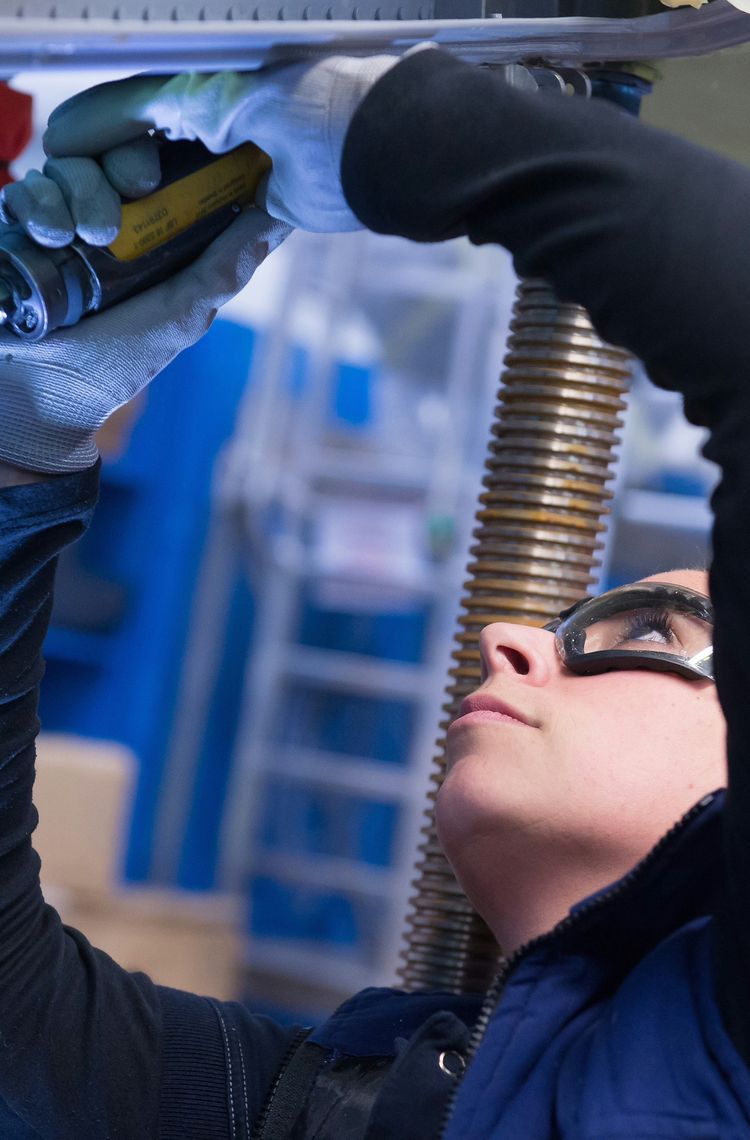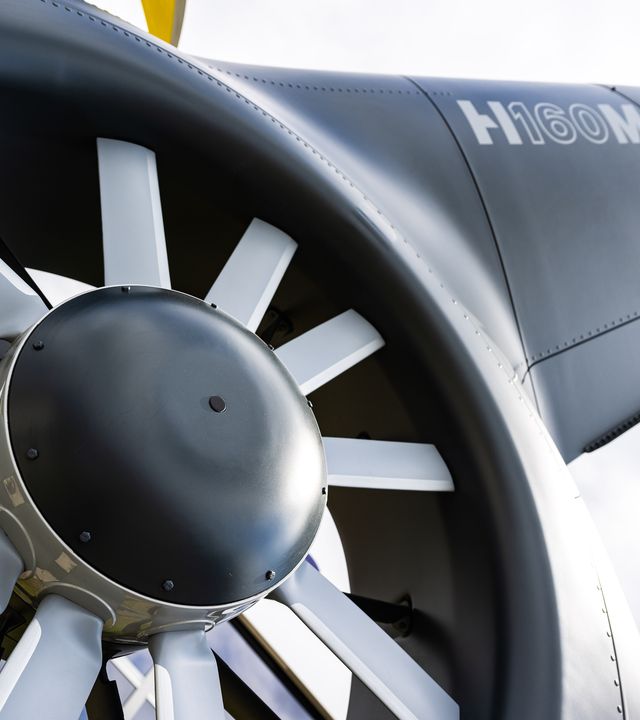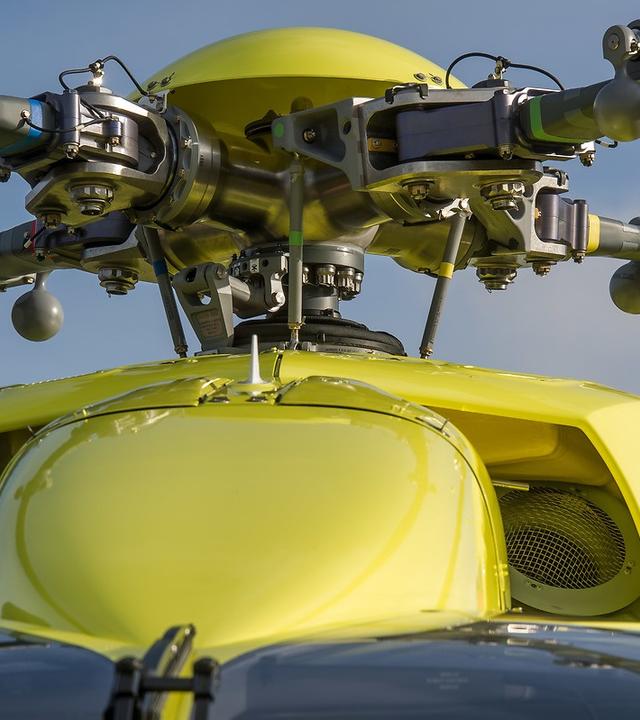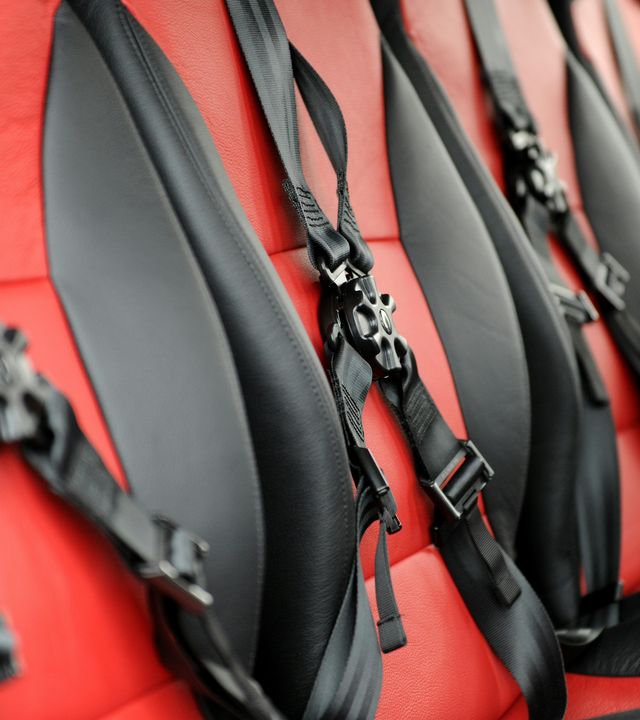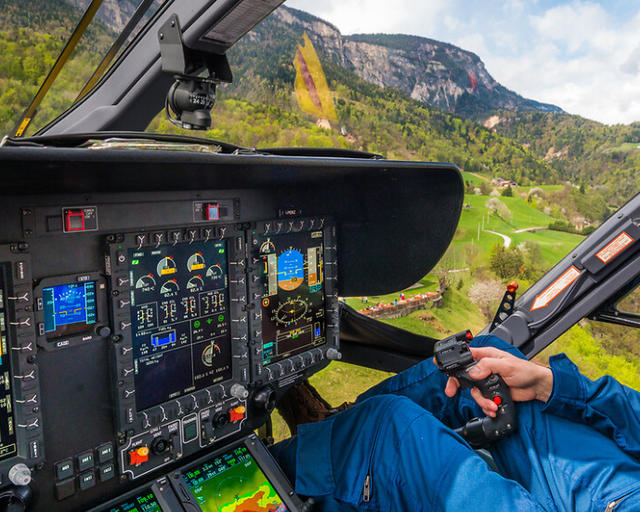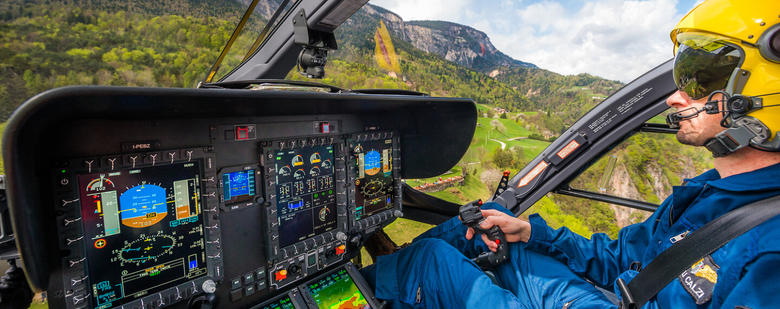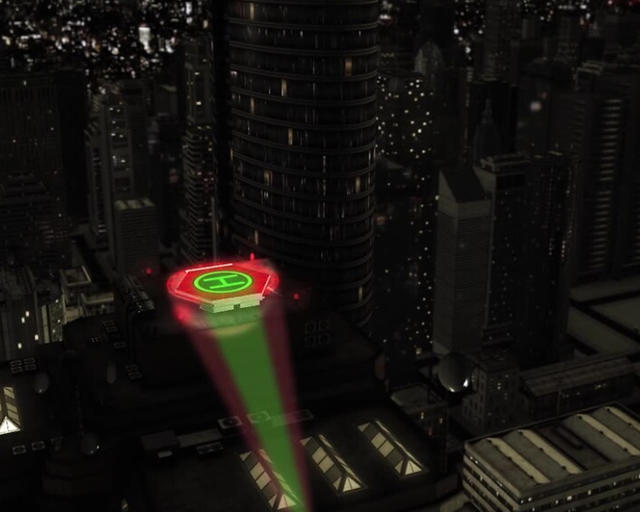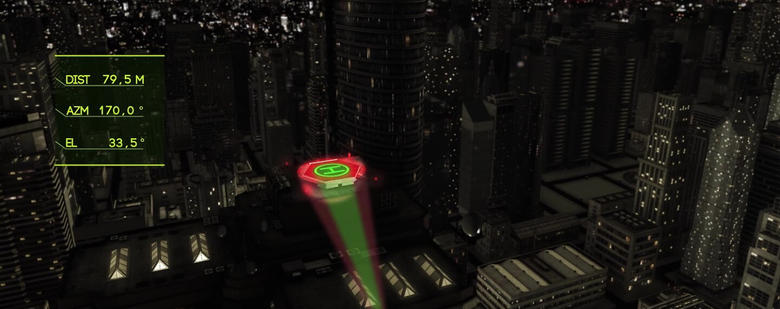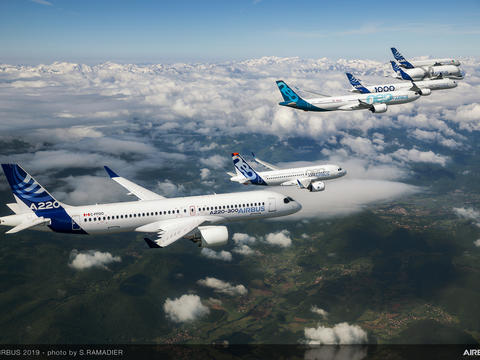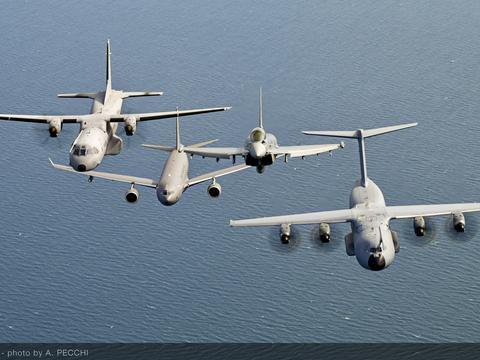Enhancing safety with innovative solutions
The technological leadership of Airbus directly supports the safe operation of the company’s rotorcraft in missions around the world.
Helionix®
The Helionix® system is an advanced avionics suite from Airbus that offers unrivalled pilot assistance in an intuitive human-machine interface, thereby improving overall safety through reduced pilot workload and unique flight envelope protection.
Featuring high levels of redundancy with the latest technology cockpit displays, Helionix® offers an innovative alerting system, extensive self-monitoring functions and an on-demand vehicle monitoring display, as well as Airbus’ dual-duplex 4-axis Automatic Flight Control System (AFCS) featuring functions specifically developed for helicopter flight operations.
For enhanced situational awareness, Helionix® integrates features such as digital maps, the Helicopter Terrain Awareness and Warning System (HTAWS), synthetic vision systems and more. Airbus’ state-of-the-art Helionix® avionics is standard on the latest -generation twin H175 and H160, as well as the multi-role twin-engined H145 and H135.
The Eye for Autonomous Guidance and Landing Extension (Eagle)
Airbus is developing an experimental on-board image processing management system aimed at performing automatic approaches and landings in challenging conditions. The Eye for Autonomous Guidance and Landing Extension system, or Eagle, feeds all of a helicopter’s image processing functions into the avionics system, thus improving the crew’s situational awareness and reducing the pilot’s workload.
Vehicle and engine multifunction display
The Vehicle and Engine Multifunction Display (VEMD) is an Airbus development for the management and control of primary parameters for the helicopter and engine. It reduces pilot workload and fosters a “heads-up” approach to flying – giving the pilot more time to focus on the external environment through a quick and easy scan, excellent visibility and optimised ergonomics. The VEMD is integrated on Airbus EC120, H125, H130, AS355, H135, H145, H155, H160, H175, H215 and H225 helicopter versions.
Image recorder camera flight data monitoring system
The image recording device collects inertial and positioning data, ambient acoustic data and cockpit imagery, which are stored on a crash-hardened memory module, as well as a removable secure digital card. This information is processed internally for use in Flight Operations Quality Assurance (FOQA) and flight training.
This device is also critical in supporting accident investigations – helping Airbus to construct its innovative Enhanced Virtual Environment (EVE) that provides investigators with a virtual pilots-eye view of what happened, which helps to prevent other accidents.
Supply chain
Airbus Helicopters works with its supply chain partners to leverage the strengths of this global network through a collaborative approach and shared view on safety and customer expectations.
This ensures that the company’s commitment to safety is aligned throughout the entire aircraft manufacturing process, to deliver quality aircraft that meet – and exceed – the requirements of a global operator base.
